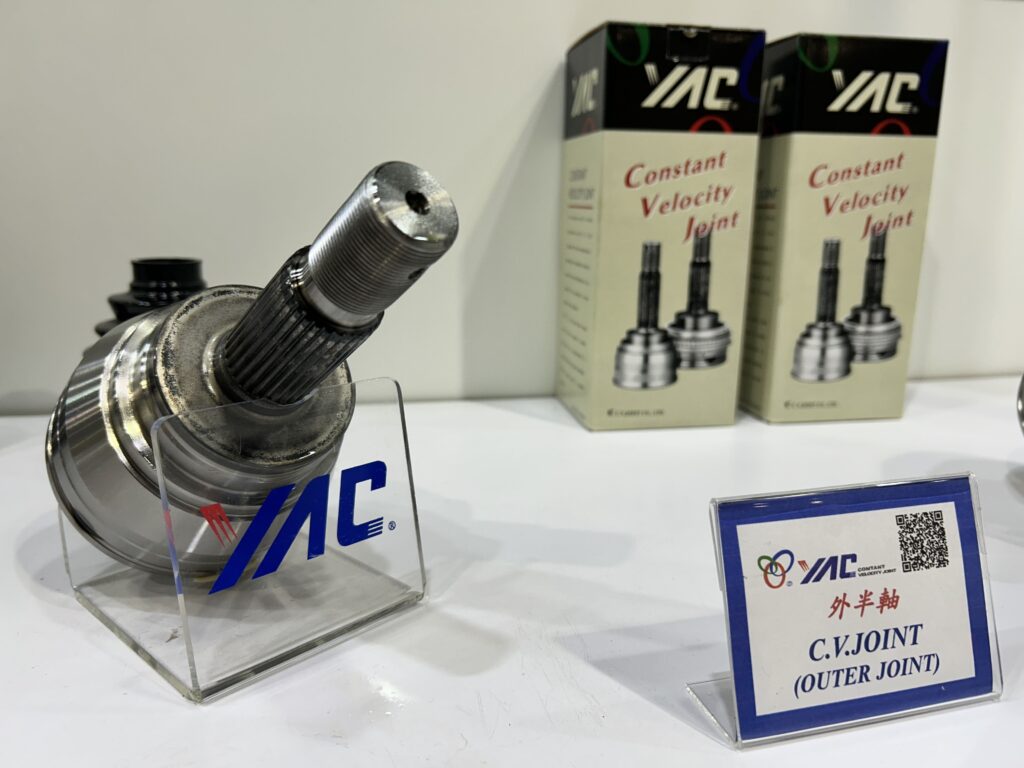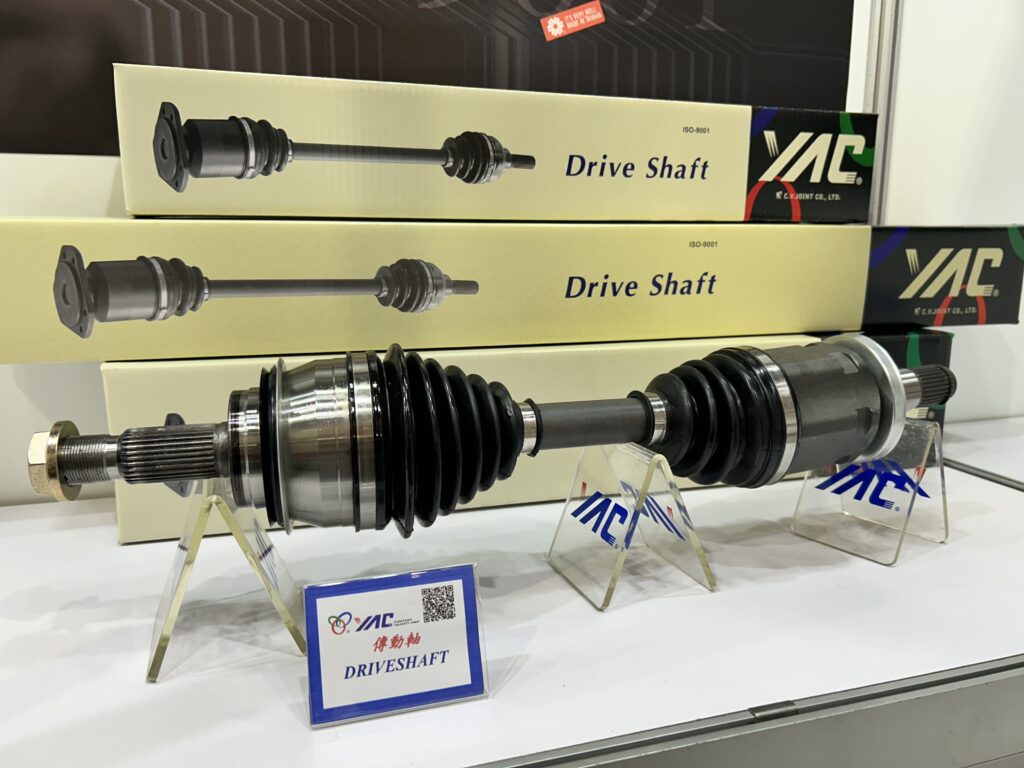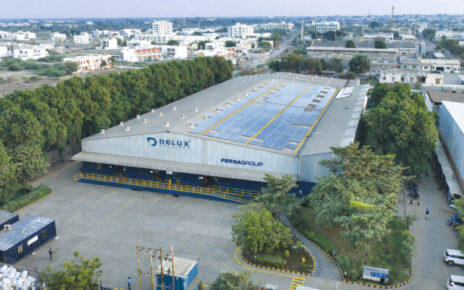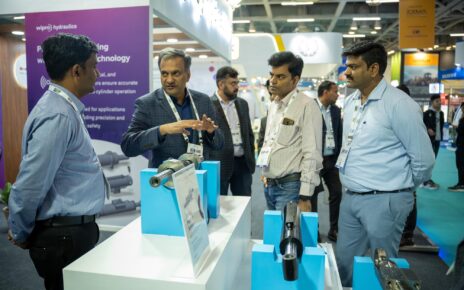At the bustling Taipei AMPA, E-Mobility Taiwan 2035, and Autotronics Taipei Show, YAC Constant Velocity Joint Co., Ltd. stood out with its legacy of quality craftsmanship, Taiwan-made precision, and a bold vision for global growth. With over 25 years in the automotive components sector, YAC continues to serve the global aftermarket with high-performance CV joints, drive shafts, wheel hubs, and more — all proudly designed and manufactured in Taiwan.
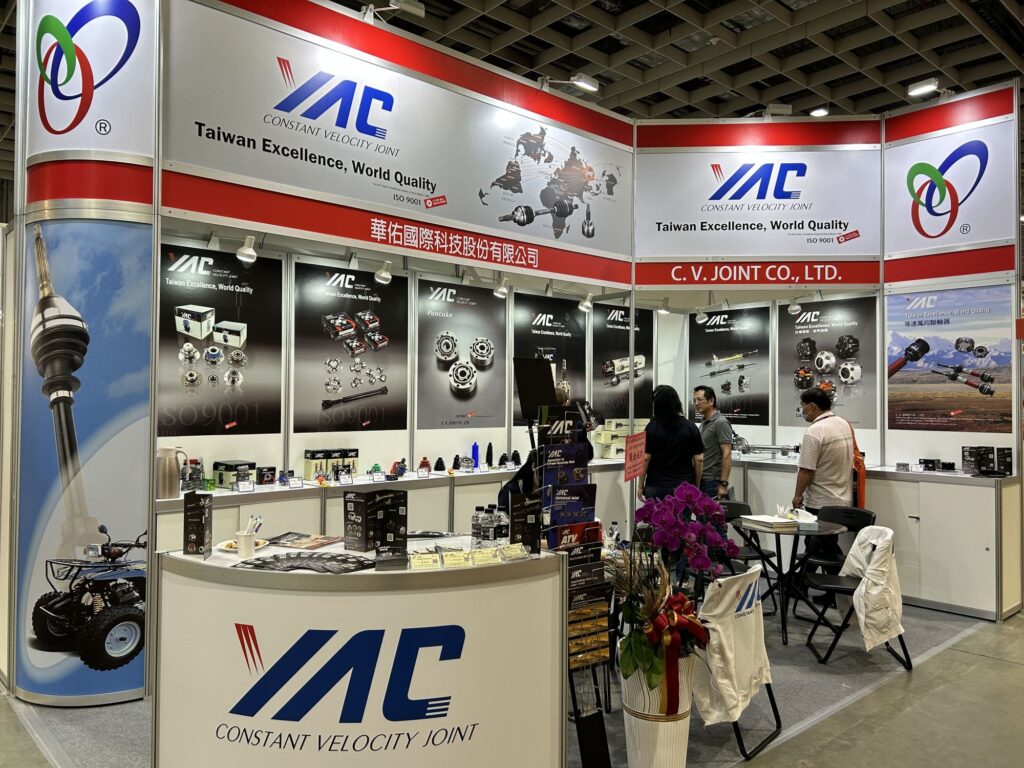
“YAC is our brand, and our main focus is on CV joints and drive shafts,” said Betty Shih, Sales Secretary at YAC. “We produce for all kinds of car models — American, Korean, Japanese — and everything is manufactured right here in Taiwan.”
Founded as a family-run business, YAC carries forward a generational commitment to precision and quality. From Betty’s grandfather to her father and now to her, the company has built its identity on core values of durability, technical excellence, and customer trust.
YAC’s signature product is its CV (Constant Velocity) joint, a critical component in the drivetrain that must withstand high torque and ensure smooth power transfer to the wheels. “We’ve been producing CV joints for over 25 years. This has been our core since day one,” she explained. “That long-term experience allows us to constantly improve the product — not only for performance but also for comfort and durability.”
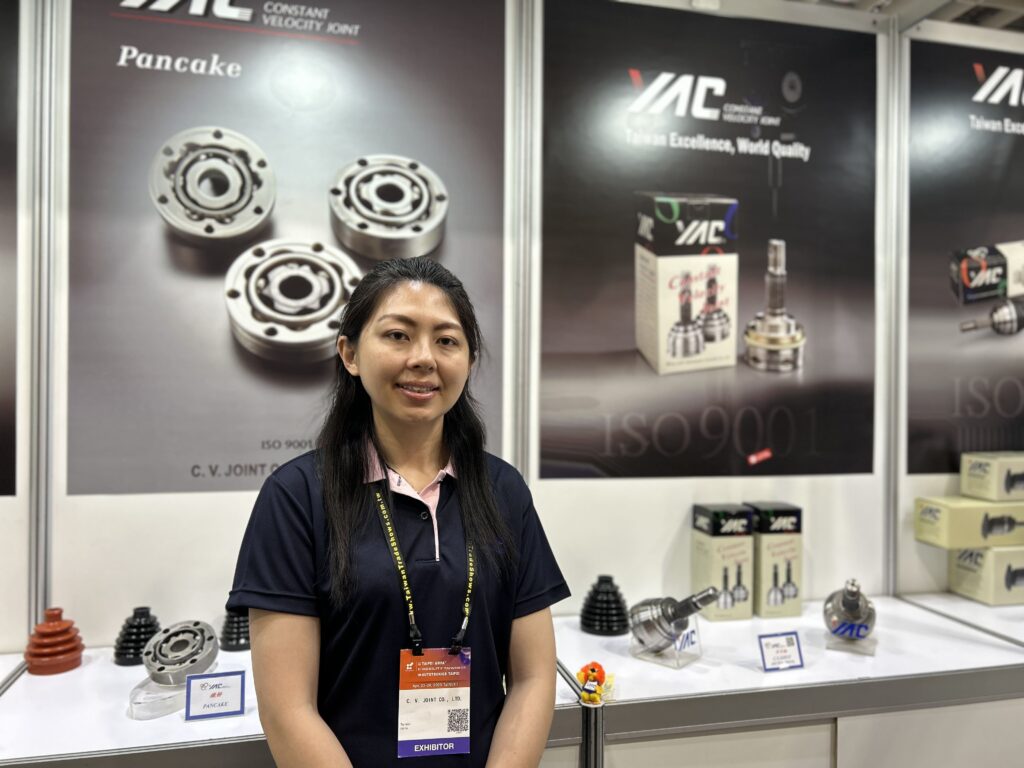
YAC is the only Taiwanese driveshaft manufacturer to receive the prestigious “Good Product” Award for automotive components. Their CV joints are built with high-tensile steel, undergo mid-frequency heat treatment, and offer benefits such as reduced noise, enhanced durability, and fuel efficiency — features highly relevant to both traditional and electric vehicle platforms.
A Taiwan-Made Supply Chain with Strategic Partnerships
While other manufacturers outsource heavily to China or Southeast Asia, YAC maintains a fully Taiwan-based production network, including a strategic hub collaboration with a factory in Tainan.
“For our wheel hubs, we work with another factory in Tainan — we provide the drawings, they produce, and we do all the quality checks before selling,” she shared. “Nothing is made in China. It’s important for us to keep everything under our control and close to our standards.”
This collaboration model ensures consistent quality control and allows YAC to scale efficiently while retaining its ISO 9001:2015-certified manufacturing standards.
Quality Over Price: Competing with Integrity
YAC competes in an increasingly price-sensitive global aftermarket — especially against mass-produced components from China. Yet, Betty is firm in YAC’s quality-first strategy. “Our prices are a little higher than Chinese products, but our customers know our quality is more durable, more stable. We focus on making the quality better and better — that’s our edge,” she said.
This focus on quality gives YAC a strong foothold in markets where reliability and long-term value matter, including Europe, Vietnam, Libya, and several other global regions.
Navigating Challenges: Delivery Time vs. Quality Standards
Despite its strengths, YAC does face challenges — primarily delivery timelines, a point of comparison that often comes up with competitors. “Customers tell us China can deliver in 30 days, but we need 60 days. That’s because we take time to check, to confirm, and to make sure the product is fully ready to sell,” she said. “We won’t compromise on that.”
This longer cycle reflects YAC’s meticulous production and inspection process, and is often worth the wait for clients who prioritize product longevity and performance.
While YAC has exported to many countries, India remains an untapped opportunity the company is eager to explore. Having had past clients in the market, they’re now considering a direct approach.
As EV adoption, performance tuning, and aftermarket demand grow in India, YAC’s reliable suspension and drivetrain components could align well with the needs of light commercial vehicles, taxis, and fleet operators.
With ongoing investment in advanced manufacturing techniques — including heat forging, cold gear trimming, and computer-controlled scheduling — YAC is setting its sights on expanding to markets where quality still commands attention.
“We still have many countries where we don’t have customers. Our goal in the next five years is to reach more global markets and find strong distributors,” she shared. “We believe there’s demand for high-quality, reliable products everywhere — we just need to be there.”
As automotive technology evolves — from internal combustion to electric drivetrains — the demand for durable, precision-engineered components will only grow. With its deep roots, manufacturing rigor, and quality legacy, YAC is well-positioned to support the next generation of mobility.
IMAGE GALLERY


